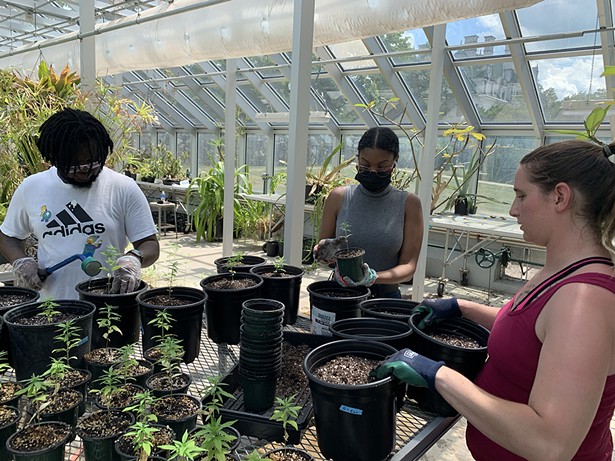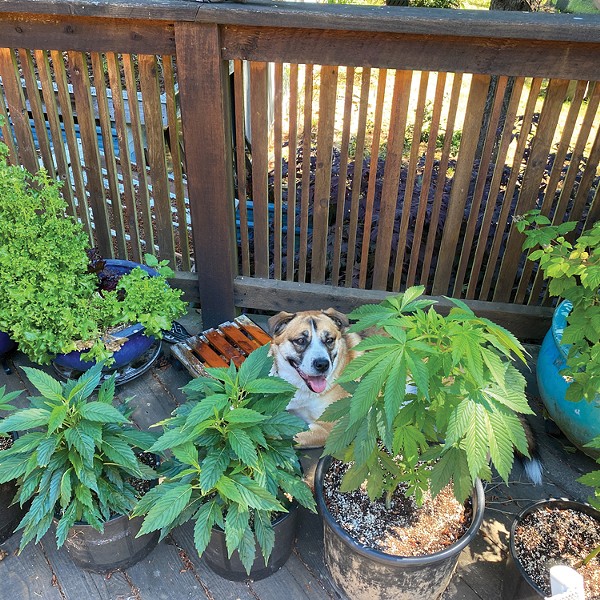
New York’s legal cannabis market is expected to rake in $1.2 billion by 2023, create 30,000 to 60,000 jobs, and generate $350 million in tax revenue a year. Where those employees are going to come from, and how they will be trained remains a question. In states like California and Colorado, training programs to meet the needs of the industry were only recently instituted. Long Beach Community College began offering an eight-week certificate course in 2020, four years after adult use was legalized in California. In Colorado, the University of Denver began offering a certification course earlier this year—nearly 10 years after the legal market kicked off. The state keeps saying that New York is doing adult-use cannabis differently. Is it? Seemingly, yes.
On July 18, Governor Kathy Hochul announced that SUNY and CUNY community colleges will receive a $5 million grant that will enable them to establish cannabis curricula in anticipation of New York State’s adult use cannabis market. “New York’s new cannabis industry is creating exciting opportunities, and we will ensure that New Yorkers who want careers in this growing sector have the quality training they need to be successful,” Hochul said.
The money will be split between many different community colleges around the state, each part of different consortia that are headed by a chosen college serving as the consortium’s lead campus. Schenectady County Community College will be the lead campus in the capital region, with Columbia-Greene Community College and others serving as partners, and Orange County Community College will serve as the lead college in the Hudson Valley, with Ulster Community College, Dutchess Community College, Rockland Community College, Sullivan County Community College, and Westchester Community College as partners. The aim of the new grant is clear: New York needs to prepare workers for the needs of the soon-to-launch cannabis industry. The aim might be clear, but what does Hochul’s announcement mean on the ground level?
Colleges will begin offering certificate courses in different forms to prepare the workforce for the emerging multi-billion dollar industry. For some colleges, the future is very clear. Columbia-Greene Community College, based in Hudson, is going to offer an online-only program this fall in cannabis retail and sales. “Students enrolled in the program will take nine credits of coursework preparing them to work in a cannabis dispensary,” says Associate Professor Maya Greene, the college’s cannabis program advisor. “This micro-credential will run again in the spring semester, concurrently with an online Cannabis Cultivation and Processing Micro-Credential. This will also consist of nine credits of coursework, focused solely on the growing and processing of the cannabis plant.”
Other colleges are still weighing their options and trying to get it right, much like New York State has been in the legalization process. Jay Quaintance, president of SUNY Sullivan says, “[We’ll offer] maybe a series of two or three courses. It could be anything from extraction and manufacturing, supply chain issues, other businesses that fall into the cannabis supply chain, social equity, etc.”
The exact curriculum that every school will offer will differ depending on the needs of the region, but the concept is the same across the board. Some schools, like Columbia-Greene, will offer two programs that are stackable, meaning taking them both will add up to a larger credential.
These credentials should prove to be very useful in a short period of time. “Moving into a new market, you’re not going to have folks coming from competitors because at this point, there aren’t any or there are very few. To find people who have experience is going to be a challenge, so the next thing you would look at is if they have some type of a certificate,” says Scott Wells, executive vice president of talent acquisition for Cresco Labs, a multi-state cannabis company that’s opening a large grow facility in Ellenville, which is expected to create 375 full-time jobs. “Those certificate folks that have some hands-on exposure would certainly make it to the top of the list,” says Wells.
The certificates are an interim solution, but down the line colleges are looking into two- and even four-year degrees with transferable credits.
“This new industry requires employees with a scientific skill set. A major goal of scientific education is to provide students with the ability for objective observation, critical analysis, and skills for making rational conclusions. As the future inevitably fluctuates, it requires people who are scientifically educated and able to respond to an ever-changing environment,” says Monty Vacura, a professor of botany and horticulture at SUNY Orange. This fall, there's only one cannabis course being taught at the school: Horticultural Cannabis. "We plan to offer the courses in earnest starting in spring 2023," says Vacura."
These community colleges are providing an education at the most affordable price, and are therefore providing the ability to adapt to the future to a wide group of people. “Educational institutions must keep their finger on the pulse of contemporary culture or risk becoming obsolete,” Greene says.
War Is Over (If You Want It)
“The War on Drugs is part of American history and part of the cannabis industry history,” says Chimi Enyia, executive vice president of SEED, Cresco Labs’ social equity initiative. The War on Drugs and its disproportionate effects incarceration for cannabis-related crimes in Black and brown communities is s acknowledged across the board as New York prepares for adult use. The concern is to make sure everyone knows this. “Many non-targeted white people have not been made aware of the association of cannabis with racism. This grant looks to educate our students with data to help them understand the impact and history of the criminalization of cannabis on our society,” says Vacura.

Cannabis companies acknowledge the importance of social equity as well. “We understand that those who have been historically impacted by the War on Drugs deserve an opportunity to take part in this growth industry that can potentially provide generational wealth in ways that we have not seen for generations,” says Enyia. The state does too. “Diversity and inclusion are what makes New York’s workforce a competitive, powerful asset, and we will continue to take concrete steps to help ensure everyone has the opportunity to participate in the cannabis industry,” said Hochul at the announcement of the grant. Can New York right the wrongs of the War on Drugs? New York approached legal pot differently from other states, but will its thoughtfulness really win out in the end?
“A special thanks should go to Governor Kathy Hochul and SUNY Interim Chancellor Deborah Stanley for their visionary leadership in supporting the largest New York workforce training opportunity of a lifetime,” says Vacura.
This is a huge opportunity, and educators want their students to be a part of it. “We would love to see more grant funding in the future, but this is a great start,” says Greene. Despite being split many ways, the $5 million will have to do for now. “If you ask a college president if a grant is enough, their first answer should be ‘absolutely not’,” says Quaintance. “But it’s a great way to get a start on things.”















